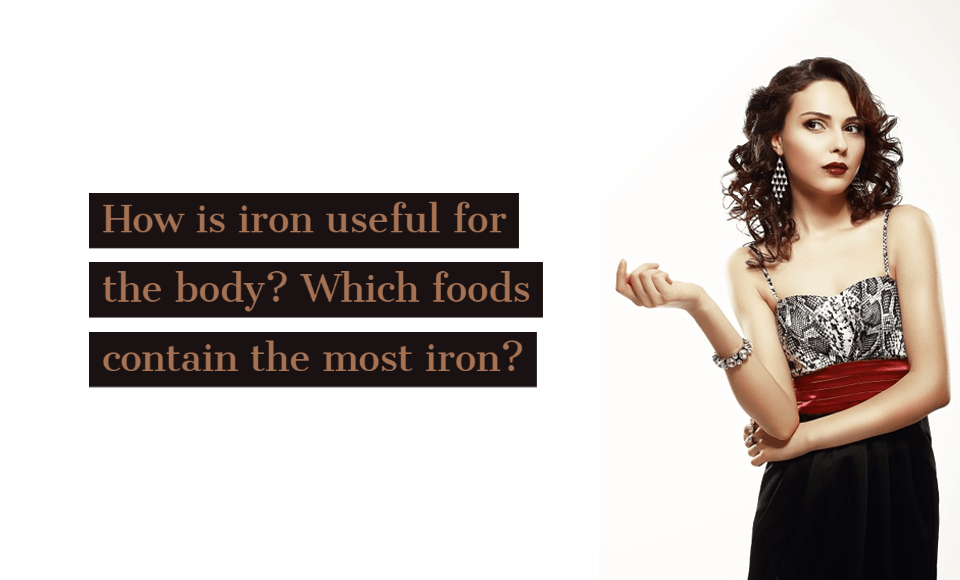Our body needs several nutrients to survive. These include various minerals such as zinc, magnesium, manganese etc. as well. These are required for various metabolic activities in our body. One of the primary metals we require is Iron. This metal plays a vital role in the growth and development of most of the living organisms, not to mention humans.
One of the most important mechanisms in our body, the blood circulation, is aided by iron. Iron is a part of Hemoglobin, the pigment that gives erythrocytes (red blood cells) their color. It is required for hematopoiesis, the production of red blood cells. Hemoglobin is what carries the oxygen from lungs to various tissues and carbon dioxide from those tissues to lungs.
Iron helps in the conversion of sugar in our blood to the required energy. It is also required for function of muscles, immune system and DNA synthesis. Iron is needed for the physical and mental development of infants, and pregnant women need to consume enough iron for the baby.
Iron is a vital part of many enzymes in our body. Several of these enzymes act as electron carriers within cells, facilitating energy transfer in the cell. Some iron-containing enzymes play a big role in detoxification of foreign substances in liver.
Our body can’t produce iron on its own so it gets the mineral from food. There are two types of iron in terms of absorption; heme iron and non-heme iron. Heme-iron is obtained from animal products such as meat, poultry and fish and is easier to synthesize. Non-heme iron is found in plants and is comparatively harder to absorb. Our body monitors the iron levels and stores excessive amount mainly in bone marrow and liver.
It is necessary to ensure we consume enough iron. The most common problem caused by lack of iron is the iron-deficiency anemia. It is a condition where there is a fall in the number of red blood cells. It is mainly found in infants, adolescents and pregnant women. The symptoms of anemia include pale skin, dizziness, fatigue and breathlessness.
The major foods that contain iron are beef, leafy green vegetables, beans, oats and lentils. Since Vitamin C helps in the iron absorption, you need to consume enough of that as well. Iron is lost from urination, defecation, sweating and blood loss. Since women have higher chance of iron loss due to menstrual bleeding, they have a greater demand of iron than men.
When it comes to the intake of Iron, there are no overdoses. If the body receives Iron more than required, it will store it for future use. Apart from how it benefits the immune system and helps transport oxygen, there are several other benefits offered by Iron.
Iron may sometimes help with unexplained fatigue. This can even happen to someone who isn’t anemic. Low levels of Iron can result in fatigue that is quite evident. Women going through the reproductive years will most probably experience such scenarios. People who have an iron deficiency will experience fatigue lasting for several weeks. However, the consumption of supplements and relevant foods can help with the problem.
A major benefit offered by Iron, which is particularly essential for newborns, is muscle strength. Apart from proteins that help our muscles grow and repair, Iron is a primary source through which the muscles derive their strength. As it is known, when muscles contract, they require oxygen, and it is Iron that helps provide oxygen to muscle contraction. Not only will they cause the muscles to become fatigued easily, but research has also shown that low Iron levels could cause the muscles to lose elasticity and tone. You can visit Peter Bouchier to know about online butchers.
A research conducted in 2015 highlighted that there was a noticeable connection between low levels of Iron and sleeping issues. People with Iron deficiency typically experience restless sleep, insomnia, and sleep apnea. In addition to that, another research in 2007 found out that iron therapy could be used to improve restless sleep in autistic children.
Additionally, Iron is found in abundance in several foods that we consume on a daily basis, such as the following:
Fruits: Raisins, dried figs, and prune juice
Vegetables: Potatoes with skin, spinach, kale, collards, and turnip, etc.
Nuts/Seeds: Cashews, walnuts, seeds, and almonds, etc.
Just as the body requires proteins, carbohydrates, and calcium, etc. for it to function, Iron at the same time is also crucial for the immune system, muscles, and blood.
